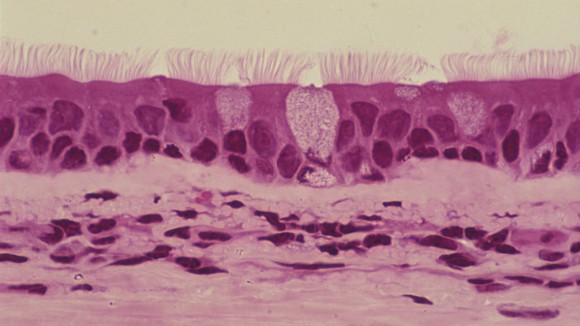 Marina Casalino-Matsuda is an Associate Professor at the Pulmonary and Critical Care Division, Feinberg School of Medicine, Northwestern University. Her research focuses on innate immunity and host defence in the lung. First, she aims to study the effects of hypercapnia (elevated levels of CO2) on alveolar macrophages and airways infected with virus including influenza and SARS-CoV-2. Second, she seeks to delineate how alveolar macrophages become infected with SARS-CoV-2. Dr Casalino-Matsuda has been an Editorial Board Member for Scientific Reports since 2019.
Marina Casalino-Matsuda is an Associate Professor at the Pulmonary and Critical Care Division, Feinberg School of Medicine, Northwestern University. Her research focuses on innate immunity and host defence in the lung. First, she aims to study the effects of hypercapnia (elevated levels of CO2) on alveolar macrophages and airways infected with virus including influenza and SARS-CoV-2. Second, she seeks to delineate how alveolar macrophages become infected with SARS-CoV-2. Dr Casalino-Matsuda has been an Editorial Board Member for Scientific Reports since 2019.
 Brice Sperandio is an Immunologist, Microbiologist, and Researcher at INSERM, France. He has a thorough expertise in human innate immunity and (epi)genomics. His research team at ENS Paris, France, is working on the fundamental comprehension of human antimicrobial peptide (AMP) gene regulations and translation of this knowledge in the development of an innovative therapeutic strategy based on AMP-inducer molecules to fight against antimicrobial resistance. Dr Sperandio has been an Editorial Board Member for Scientific Reports since 2019.
Brice Sperandio is an Immunologist, Microbiologist, and Researcher at INSERM, France. He has a thorough expertise in human innate immunity and (epi)genomics. His research team at ENS Paris, France, is working on the fundamental comprehension of human antimicrobial peptide (AMP) gene regulations and translation of this knowledge in the development of an innovative therapeutic strategy based on AMP-inducer molecules to fight against antimicrobial resistance. Dr Sperandio has been an Editorial Board Member for Scientific Reports since 2019.

